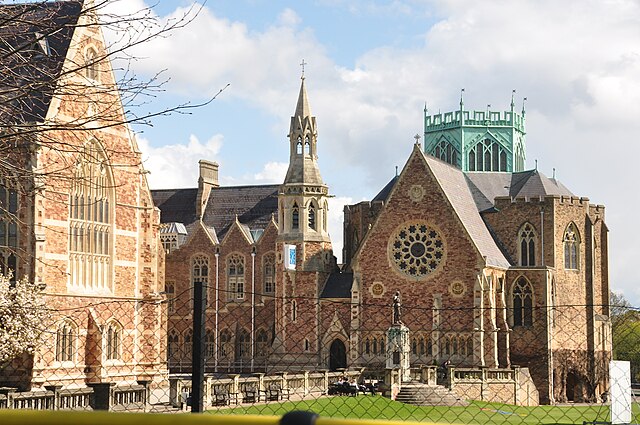
By Professor John R. Bryson
Professor of Enterprise and Economic Geography, The Department of Strategy and International Business, Birmingham Business School
One of the underlying themes of the upcoming general election is that Britain is broken, with Sir Keir Starmer pledging to “fix broken Britain”. Nevertheless, it is British political discourse that is broken rather than Britain itself. This country needs a new form of responsible politics, with politicians and political parties avoiding rhetoric that distorts reality and obscures, and which is not evidence-based.
There is a long-term structural deficit in this country’s national accounts and either there must be a fundamental restructuring of public service provision, or a substantial increase in the tax take. In this election, the Labour party has proclaimed that, if elected, that it will not raise income tax, national insurance, or VAT. However, Labour has already committed to raising both income tax and VAT. On the one hand, both Labour and the Conservatives plan to freeze income tax thresholds until 2028 and the outcome is that people will pay more tax. It is time for both parties to put in place a policy that aligns the tax thresholds with inflation. On the other hand, at the last Labour Party Conference it was decided that one of their first steps in government would be to end the tax break for private schools, which exempts them from VAT and business rates.
The Labour Party is being deliberately disingenuous over what it terms private schools, but which in realty are predominantly not-for-profit independent schools. For Labour, ‘private’ education is equated with advantaged people and their children, but the reality is vastly different.
The key point to consider is that no such tax break exists for ‘private’ or independent schools. This is a Labour Party fiction. All interested in developing an informed and responsible debate on education should consult the current government guidance on Education and Vocational Training (VAT Notice 701/30). This document must be central to any informed debate on taxing educational provision.
The overarching principle set out in VAT Notice 701/30 is that “if school, higher or further education is being provided for a charge, the VAT consequences are for an eligible body”, but that “the education provided is exempt” as are “any ‘closely-related’ goods or services”. The point being is that Labour’s so-called tax break is not one about independent schools but is about the provision of educational services in general. I am a passionate believer in tax harmonization. This usually occurs between states but should also occur within states. Thus, removing the ‘tax break’ on one type of educational provision provided for a charge must naturally lead to the imposition of VAT on all forms of for charge educational provision. This means that VAT should be added to all university and further education fees.
There is a major problem here. Labour does not like ‘private schools’ and one could argue that this is one of the party’s ideologically derived blind spots. Across the EU, educational services are exempt from VAT and this reflects a responsible and informed approach to the contribution educational services make to national economic stability and responsible and inclusive economic growth. Any nation that places taxes on the provision of educational services is a foolish nation and the same holds for any political party.
One of Labour’s election pledges is to deliver economic stability, with Labour positioning itself as the party for business. And yet, if elected, one of Labour’s first steps will undermine the financial viability of many independent schools. In Labour’s terms these are all private businesses. However, there is a much more important point. Economic stability requires a diversity of skills in the labour force. Independent schools are an essential part of this country’s educational ecosystem. They provide children and their parents with choices and ensure that business, the arts, and sports have access to the diversity of skills and talented employees that are required to support sustainable economic growth.
It is important to remember that independent schools educate over 500,000 pupils, but around 1 in 5 have special educational needs and disabilities (SEND). Moreover, half of independent school have under 290 pupils and one quarter have under 155. It is these smaller schools that are likely to close under Labour’s plan to tax the provision of educational services.
There is a place-based dimension here that has not yet been explored in any political debate. Margaret Thatcher is associated with the closure of coal mines and the negative impacts that this had on smaller towns and cities. Labour will be associated with the closure of independent schools. Many of these schools underpin the economies of smaller towns and cities across the UK and closure of any one of these schools will have major negative local impacts.
It is time for UK politicians and journalists to have an evidence-based discussion on UK futures. As part of this, Labour must be transparent about their decision to break with the convention that exists in many countries that educational services should not be taxed. If this convention is broken, then all providers of educational services should be taxed. Why tax one type of independent provider of educational services rather than all providers?
Taxing educational service provision across the UK will come with immediate and long-term negative consequences that come from the erosion of this country’s educational ecosystem. It is unfortunate that Labour’s blind spot will impact on the life chances of so many young people and will also have a major negative impact on this country’s future economic stability.
- Find out more about Professor John Bryson
- Back to Social Sciences Birmingham
The views and opinions expressed in this article are those of the author and do not necessarily reflect the official policy or position of the University of Birmingham.
